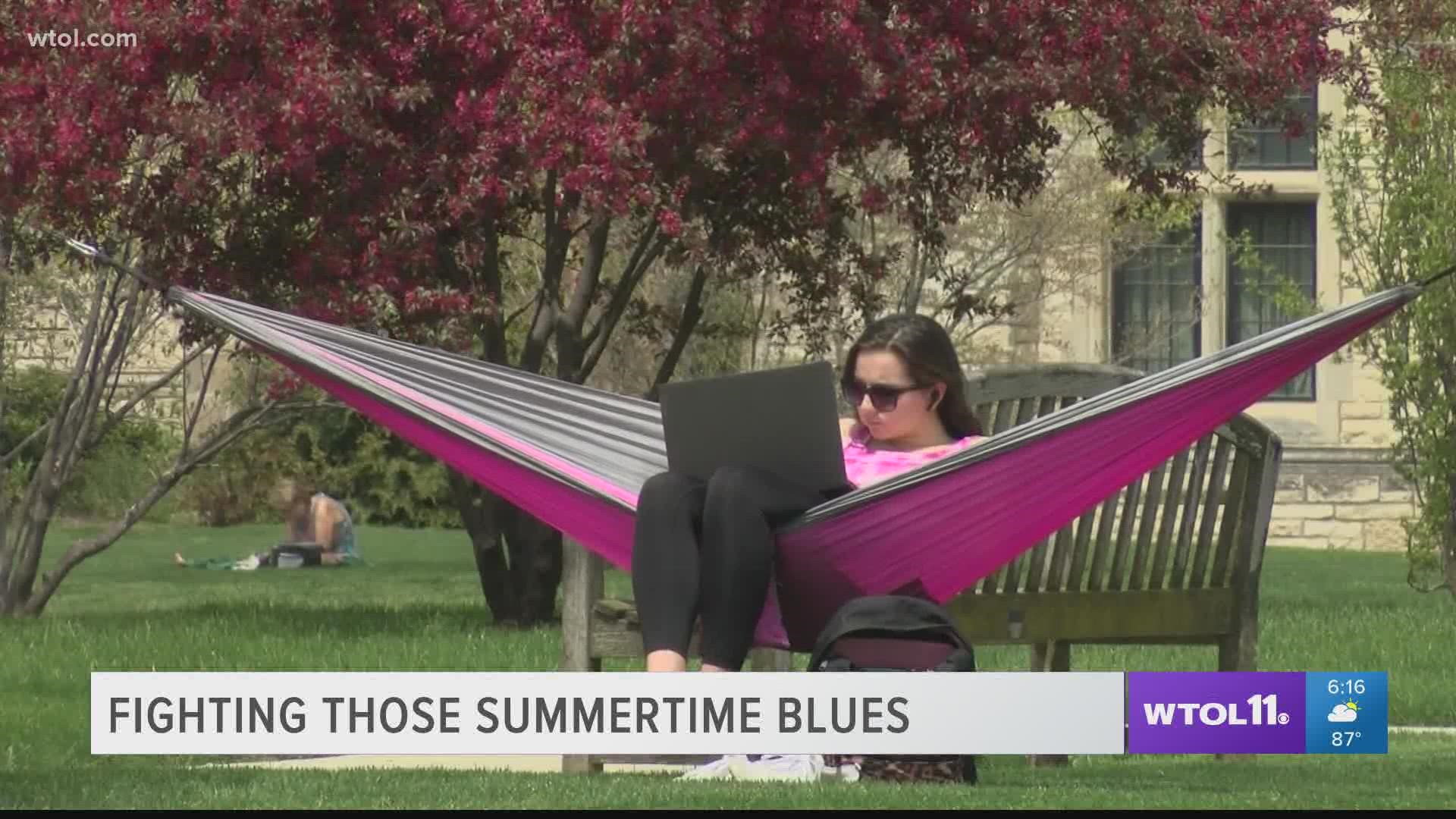TOLEDO, Ohio — You've probably heard the song made famous by Eddie Cochran, "there ain't no cure for the summertime blues".
It's a catchy song, and one that points to a little-acknowledged but not uncommon issue - Seasonal Affective Disorder isn't just something that people experience in the winter.
This last year and a half have done a number on both our physical and mental health.
But it wasn't until pandemic restrictions began to loosen earlier this summer that some people really began hitting a wall.
"I will say that with COVID, and regulations, and things reducing, I think that this summer has been one that has been particularly difficult because there is a lot of social pressure to get out and make up for lost time," said Mercy Health psychologist, Dr. Aimee Drescher.
She says Seasonal Affective Disorder, or SAD, typically comes with a change in seasons.
"Seasonal affective disorder is a type of depression and so it really does come with those same symptoms and characteristics," she said.
That means appetite changes, weight gain, low energy, or sleeping troubles.
SAD saps your energy and makes you feel moody. And although symptoms are prevalent in the fall and winter, they're also common in the summer.
It's sometimes called the "summertime blues".
"When you think about more of adjustment disorders and adjustment-related challenges, it's usually when there's some sort of transition or some life event that causes an increase in our symptoms and that absolutely can happen at any time of the year," said Dr. Drescher.
Between going to work, being on vacation, and just the transition that we experience, our moods, and in turn our sleep, can be affected.
To help, many people find increased exercise a great mood lifter. But, something as simple as planning your day can go a long way.
"Start by taking inventory, looking at your schedule, looking and planning ahead for some of those things that can happen," Dr. Drescher said. "I know as a parent it's sometimes difficult to plan ahead; something may just pop up from the school as they're transitioning back and so you don't necessarily plan for it."
The important thing is to realize you're not alone, that this isn't altogether uncommon.
"When we are busy like that it makes us more vulnerable to our emotions," she said.
And to remember to stop and take in your surroundings during what may be an otherwise hectic summer schedule.
If it comes to it and you feel a loved one needs immediate help, you can always call Ohio's free counselor hotline at any time to speak with counselors. The number is 1-800-720-9616.
RELATED:

